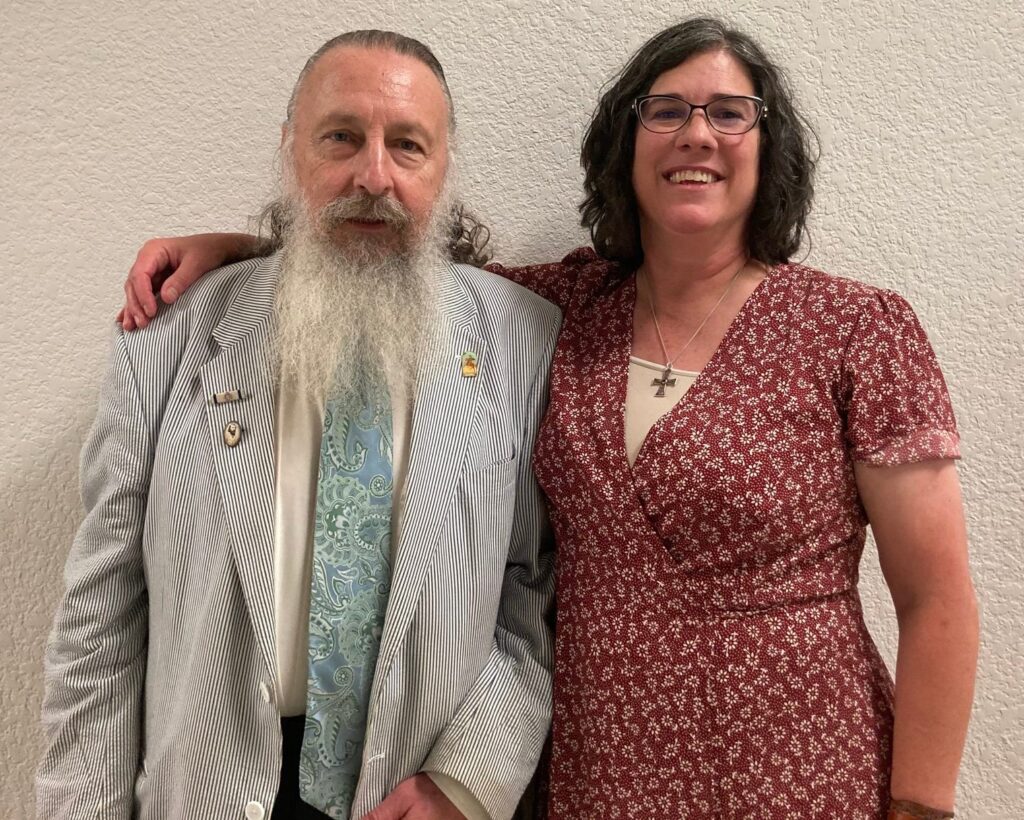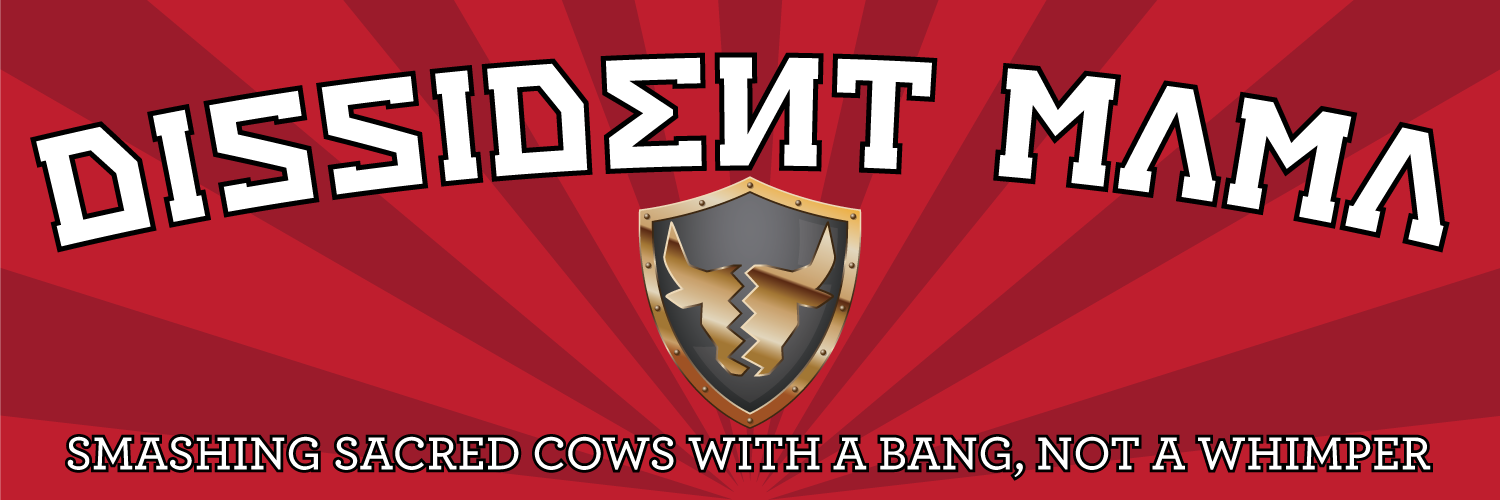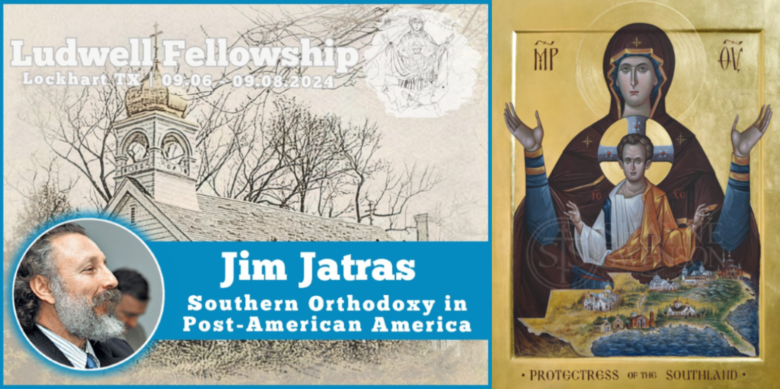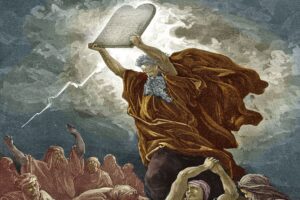“Southern Orthodoxy in Post-American America”
By Jim Jatras
Ludwell Orthodox Fellowship Conference 2.0
September 7, 2024
Lockhart, Texas
Marley was dead: to begin with. There is no doubt whatever, about that. The register of his burial was signed by the clergyman, the clerk, the undertaker, and the chief mourner. Scrooge signed it; and Scrooge’s name was good upon ‘change, for anything he chose to put his hand to. Old Marley was as dead as a door-nail.
Mind! I don’t mean to say that I know, of my own knowledge, what there is particularly dead about a door-nail. I might have been inclined, myself, to regard a coffin-nail as the deadest piece of Ironmongery in the trade. But the wisdom of our ancestors is in the simile; and my unhallowed hands shall not disturb it, or the country’s done for. You will therefore permit me to repeat, emphatically, that Marley was as dead as a door-nail.
…which brings me to the topic of the American republic.
Now, I understand that there may be some here who might be a tad offended by this formulation. “The republic – dead? What about ‘muh Constitution’? ‘Muh democracy’? What about the inevitable victory of ‘We the People’ when the once and future divinely anointed Cheeto Messiah is reinstalled in January next year?”
Well, if anyone wants to argue the point, I’m game. But for the moment let’s just take it as a working proposition that the United States of America, as a viable rule-of-law entity, must be regarded in the past tense. Toast. Finis. Kaput.
Many Americans – I mean real ones, who still have some love of our country as it once was, who took pride in it, who lament its ongoing agony – are still fixated on “getting back to” what they still think is our current constitution (actually, our second one, after the Articles of Confederation of fondly lamented memory). (I can’t help but think of the naïve, liberal dissidents in the USSR in the 1960s and ‘70s, who yearned to “get back” to the original Leninist principles of the October Revolution, which they thought had been “corrupted” by Stalin….)
Of course, I hardly need tell this audience that the original confederation of sovereign republics drafted at Philadelphia in 1787 died at Appomattox Courthouse in 1865. Under the cover of the same document (as hopelessly mutilated by the 14th Amendment), it was replaced with something we might call a federal democracy, which lasted about a hundred years. That in turn was succeeded (again, under the guise of the same document) by an increasingly tyrannical, corrupt, centralized bureaucratic “national security” regime dominated by various entrenched interests and bent on world empire.
One hardly need supply the details. We have presidents who make war at will, with Congress at best compliant enablers; a supposed “legal tender” issued by fiat of the Federal Reserve Bank and (until recently) underwritten by Wahhabist despots; legislative authority wielded by unelected bureaucrats in cahoots with the corporate vultures they supposedly police; centralization of federal power that renders the several (ha ha) “sovereign” states little more than administrative districts; an imperial Judiciary that usurps Executive and Legislative authority alike with nary a murmur of protest, while inventing constitutional “rights” that appear nowhere in the text; human wreckage in what had been our industrial heartland, a result of deliberate policy decisions of outsourced manufacturing and insourced foreign labor; a “democracy” consisting of a shady market-sharing scheme between two empowered parties whose main activity is spending obscene amounts of money (adding about a trillion dollars to the national debt roughly every 90 days); collusion of multiculturists and plutocrats to debase the value of citizenship by mass importation of aliens, both legal and illegal, coupled with court-mandated lack of ballot security; a massive military structure designed for global power projection but which has been useless for defending our own borders. As the late, great Joseph Sobran observed, the most that can be said of our supposed Constitution is that it presents no serious threat to our current form of government.
In short, whatever the Framers meeting in Philadelphia had sought to ordain and establish for themselves and their posterity, their handiwork has long since become window-dressing for lawless, arbitrary power. As Robert E. Lee warned in his day, “The consolidation of the states into one vast empire, sure to be aggressive abroad and despotic at home, will be the certain precursor of ruin which has overwhelmed all that preceded it.” Lee hardly could have imagined how “aggressive abroad and despotic at home” the post-constitutional order would turn out to be. If the Founding Fathers had had any inkling of it, I think they’d have tripped over each other over in their mad rush to prostrate themselves in abject, penitent submission to their earthly lord King George III.
I am convinced that the United States, as a unified polity, has no future, which soon will become unavoidably obvious. As for what that might look like, we have the words of Elder Ignatiy of Harbin almost a century ago: “What began in Russia will end in America.” The question is, which part of Russia’s experience? There are at least two possibilities:
· On the one hand, we might undergo something analogous to the high Bolshevism that was blazing at full intensity in the 1920s and ‘30s, of a committed, triumphalist totalitarian order. In America, it wouldn’t be red but rainbow – “rainbow fascism,” as I called it in a 1998 article in Chronicles magazine: a monstrous parody of the country I grew up in and loved, a borderless, multiethnic, multilingual, multireligious, multisexual, ahistorical, “intersectional” fake “America” overseen by an all-powerful surveillance state cancelling all dissent; or
· On the other hand, perhaps we’ll jump directly to a replication of Russia’s experience during communism’s terminal phase of the 1980s and ‘90s, when the Soviet system came crashing down and what had been a unified country built up over centuries came apart, along with much of the social fabric.
· Or perhaps we’ll see both in succession?
Well, as countries go, 250 years or so is a pretty good run…
As tweeted by someone: “America is a corpse being consumed by maggots. Liberals are rooting for the maggots. Conservatives are rooting for the corpse.” My sympathies are of course with Team Corpse, but whether an American ethnos – the self-aware people who established the constitutional state in the first place – can survive the effective end of the republic that has been our political expression almost from the beginningis at best an open question.
When I was a kid more than half a century ago, from a family of relatively recent immigrant origin, if you told the average non-hyphenated American that Americans weren’t a nation, he’d have punched you in the nose, and deservedly so. Now, after decades of multi-culti propaganda based two great lies—first: that we’re a “civic” state, not an “ethnic” one, and second: that America is a “nation of immigrants”—we don’t know who or what the hell we are. Mind you, I’m not saying the Constitution is – or rather, was – unimportant, but it’s an epiphenomenon, not the foundation but an expression of something more fundamental: the people who created it who were, well, Englishmen who’d fought for what they saw as their rights as Englishmen and separated from the Crown as a consequence. Hint: that’s why we’re speaking English. (For the time being, anyway.) Observed John Jay, the first Chief Justice of the US Supreme Court: “Providence has been pleased to give us this one connected country to one united people—a people descended from the same ancestors, speaking the same language, professing the same religion, attached to the same principles of government, very similar in their manners and customs.”
For almost two hundred years, that founding ethnic identity defined Americans: European ancestry, principally English, a/k/a white; English-speaking; Christian, mainly Protestant. That’s the national identity to which those of us not of Anglo-Saxon origin assimilated to, before assimilation became a hate concept. As stated by the late Samuel Huntington: “Subsequent generations of immigrants were assimilated into the culture of the founding settlers and modified it, but did not change it fundamentally. . . . Would America be the America it is [or was?] today if in the 17th and 18th centuries it had been settled not by British Protestants but by French, Spanish, or Portuguese Catholics? The answer is no. It would not be America; it would be Quebec, Mexico, or Brazil.” The ethnos makes – or rather, made — the Constitution, not the other way around.
Will post-Constitutional America lead inevitably to an ethnically post-American “America” as well? Will we cease to be recognizable as one people? Have we already? Will the death of the American republic be followed by the death of the American ethnos? Historians routinely speak of ethnogenesis: how a people comes into being. Few address the question of ethnothanatos: how a people dies.
Now, to move from the sublime (A Christmas Carol) to the ridiculous (The Princess Bride), maybe what we’re talking about isn’t the American ethnos dying completely but (maybe it just so happens) being only mostly dead. There’s a big difference between mostly dead and all dead. Mostly dead is slightly alive. With all dead, well, with all dead there’s usually only one thing you can do – go through his clothes and look for loose change.
…which brings me to the topic of the South.
No doubt many of you have read, or at least heard of, the 1989 book Albion’s Seed: Four British Folkways in America by David Hackett Fischer. In brief, it details the four “tribes” that settled what became the United States, roughly in order of their first arrival:
1. The staunchly Anglican “Cavalier” culture from the south and west of England, who had been Royalist during the English Civil War, and settled in the Chesapeake region;
2. The Puritans from East Anglia, who had supported Cromwell and established New England;
3. The Quakers and “Quaker-friendly” largely from the north of England who landed in the Delaware valley; and
4. Arriving last, the “Borderers” from the contentious frontier between England and Scotland (“people that will be Scottishe when they will and English at their pleasure”), some of whom made a layover in Ireland to suppress the popish Wild Irish and hence are often called Scotch-Irish, a rough crowd the other three groups shipped out to the Appalachians as soon as possible to go kill Indians. (One observer remarked that these folk didn’t like to use plates when they ate as it would dull their scalping knives.)
The English Civil War has been fought three times. First, over there in the 1640s. The second time was over here about 130 years later, when the Chesapeake Cavaliers teamed up, for reasons I’ve never quite understood, with that Boston Roundhead riffraff, raising their hand against the Lord’s anointed – a sin for which, a few decades later, the same Cavaliers’ sons and grandsons paid a terrible price in blood – at the hands of the Puritans’ intellectual and spiritual heirs, who increasingly were departing from Christianity altogether – when the South unsuccessfully sought to exercise what it regarded as the same right to independence,
To all appearances, the once-dominant high Cavalier identity that once defined polite culture in the South is nowadays pretty much gone with the wind. Reflecting many decades of Kulturkampf against tradition, Yankification of speech, manners, and – most importantly – opinions is the mark of upward mobility and social standing. To the extent to which we think of a unique contemporary (not just nostalgic) Southern identity, it’s the cartoonish caricature of the redneck, the cracker, Cletus the Slack-jawed Yokel meets Honey Boo Boo, an ignorant, moonshine-swilling, racist, Bible-thumping, neo-Confederate Lost Causer – a hateful propaganda construct similar to that directed against Russians, as Dissident Mama has so well described.
When an ethnos dies, or is killed, the submerged components that led to its formation in the first place may unexpectedly stagger back into view. Sometimes this is done artificially, as when the Bolsheviks recognized Ukrainian and, even more absurdly, Byelorussian as separate nationalities to hasten the breakdown of the prerevolutionary Russian identity. For what it’s worth, the United Kingdom is these days not looking so united as the all-out war on Englishness proceeds.
As the Global American Empire (the “GAE”) comes unraveled, hastening the dissipation of the last mirage of an American republic, prospects for sustaining a common American ethnic identity – already weak – may shrink dramatically. Let’s keep in mind the paradox that the South, after its forcible reincorporation into the Union, became, and by most accounts remains today, the most nationalist region of the country. It’s not unreasonable to suppose, as the GAE and the country that is its base of operations dissolve, that among the “loose change” found in the pockets of what used to be America may be a rediscovered Southern identity.
For a century and half the notion that “the South will rise again” seemed little more than a wistful fantasy. That fantasy may lurch toward reality in the not-too-distant future.
What happens next in terms of a revived Southern-ness will depend in part on which aspect of the Russian experience America is about to replicate.
· If it’s the “hot” Bolshevism of the 1920s and 1930s, the contours are only too clear. The formal organs of the pseudo-American regime, however discredited, will continue their war to eradicate America’s historic white, Christian, Anglophone identity targeted under a grab-bag of enemy labels: “Christian nationalists,” “white nationalists,” miscellaneous “haters,” “conspiracy theorists,” “insurrectionists,” “science deniers,” “religious fanatics,” “gun nuts,” “purveyors of “medical misinformation,” and, of course, “racists,” “sexists,” “homophobes,” and so forth. As always, the stereotypical Southerner will be the canary in the coalmine, the worst element of the old American identity that needs to be rooted out and replaced. Whether Americans in general, or Southerners in particular, can withstand the onslaught of anarcho-tyranny on steroids is at best questionable.
· On the other hand, perhaps we’ll see something like what happened to the Soviet Union in the 1990s – maybe even a territorial breakup of the US. What happens to the South and Southerners then? To be sure, what we are not talking about is an orderly secession of states as in 1861. Instead, with the potential breakdown of civil governance as the anti-constitutional imperial establishment centered in Washington unravels at home and abroad, we can expect hardships that we’ve become accustomed to think only happen to “other people” in “other countries” far away, not seen here since the Revolution and the “Late Unpleasantness,” or maybe in isolated instances during the Great Depression: financial and economic disruption and, in some places, especially in urban areas, collapse; supply chains, utilities, and other aspects of basic infrastructure ceasing to function (what happens in big cities when food deliveries stop for a week?), even widespread hunger; rising levels of violence, both criminality and civil strife – perhaps civil war. If so, it won’t be neat lines of boys wearing blue and gray shooting at each other but more like what we’ve seen in places like Bosnia or Lebanon. Or Rwanda. It’s not pretty.
Whichever future awaits us, it will be a white-hot ordeal. If it comes to pass – and I think that in one form or another, will it – can it be the crucible from which a recast, self-aware Southern identity emerges? Or perhaps multiple identities, such as Texian?
… which at long last brings me to the topic of Orthodoxy.
I’d like at least to hope that Orthodox Christians benefit from a spiritual acuity of a level somewhat better than the American average, even better than the Christian average. One way or another, I am certain – though I hope I’m wrong – this country and the world are on the edge of great tribulation. (Perhaps even THE Great Tribulation, since we don’t accept the Pre-Trib Rapture, but let’s put that aside for our purposes today.) Will we Orthodox Christians hold up better than others? Time will tell.
What of our non-Orthodox neighbors? Some of them, to be sure, are strong morally and mentally healthy people. Many of them are people of Christian faith, according to the light they’ve been given, where truth and error are all jumbled together to one degree or another. We will see how much support they can find in their faith in the time of trial, as the Western denominations (including of course, Roman Catholicism) increasingly putrefy.
At the first Ludwell conference last year, Don Livingston, Clark Carlton and others noted that the Southern culture, with its respect for tradition and custom, its disdain for the Yankee “itch” to remake the world and their neighbor in their own image, predisposes them to Orthodoxy. I think that’s true, to they extent there are still Southerners worthy of their roots. While there’s not much left of the old Cavalier class or its ethos, still preserved in places like the Abbeville Institute, there are nonetheless lots of stalwart, upstanding, self-reliant representatives of the sort who once made the South and America great. But even many of them have been dumbed-down by Dispensationalism (those who to think God’s flag is blue and white with a single six-pointed star) and by rah-rah-rah American civic nationalism. (Every year on Confederate Memorial Day at the beautiful Spotsylvania Confederate Cemetery, along with the tender prayers and stirring musket and cannon fire, we are regaled with an impassioned tribute to the glories of our constitutional republic and our rights thereunder, as though 1865 and subsequent corruptions had never happened).
Not to mention the personality cult, wildly popular in the rural South, of the Orange Savior from Noo Yawk City. So much for “Trust not in princes…”
But let’s not pretend that many millions of Southerners, even those not in the cities, haven’t been as debased as the rest of America. Look around at a rural Food Lion or Piggly-Wiggly. Yes, we’ll see many of those functional, morally upright, fervently Christian (but not yet Orthodox) “heritage” Americans, some of whom might even possess a residual Southern consciousness. (I saw a young fellow proudly wearing a battle-flag shirt at the Food Lion a few weeks ago. The middle-aged guy in front of him was from New York and voiced his disapproval.) We also see lots of the wreckage that afflicts the rest of the country: grossly obese to the point you can almost hear them going blind from diabetes, dressed like out-of-work rappers and tattooed and pierced like a bunch of South Sea islanders, reliant on WIC and food stamps to sustain a diet mostly consisting of high fructose corn syrup, not to mention meth and fentanyl. Declining marriage, birth, and legitimacy rates and rising death rates, declining church attendance. If it’s better in the South than in the rest of Flyover Country, it ain’t by much.
I say this neither to mock nor to pity. You don’t punch somebody in the face and then tell him he was always ugly. But let’s not pretend that with the current human materials we need only send the modern equivalents of the Yankee Carpetbagger and his Scalawag collaborator packing, and we’ll behold the miraculous reappearance of the South of Washington, Jefferson, Madison, Monroe, of Randolph and Calhoun, of Davis, Stephens, Lee, Jackson, Stewart, Forrest, Hill, and Longstreet. The quality of leadership is not what it once was; nor, sadly, the quality of the people themselves.
The less said of the cities, the better. Let’s not kid ourselves. Sure, it’s tempting to look at the spiritually, psychologically, mentally freakish denizens of “Maggot America” in other regions of the country, but which southern state doesn’t have its “Blue” urban and suburban areas dominated by an unholy alliance of Democratic Wokesters and (many of them GOP normies) business leaders, whose only thought for the Southern heritage is that it offends the unforgiving gods of the marketplace?
The bottom line is that the Orthodox Church as a hospital for body and soul has got a lot of ready patients in the South.
Sorry to paint such a bleak picture, but I’m a Boomer – what can I say? Sure, things look dark now, but remember: it’s always darkest just before everything goes totally pitch black.
Every silver lining has its dark cloud…
I’m not an accelerationist, a Leninist who thinks “the worse, the better.” But as Joseph said to his brothers, “As for you, ye thought evil against me; but God meant it unto good, to bring to pass, as it is this day, to save much people alive.”
In the evil of our times, let us also trust that God can and will turn it to good. Just think of how many people came to us during Covid, when people’s reactions revealed who really was who, the wheat from the chaff, in stark, brutal relief. Now, in the coming dystopia I’ve set forth, multiply that severalfold and consider what that might mean for the growth of the Church, “to save much people alive,” not only physically but spiritually.
Of course, I’m sure most of them will be the wrong kind of people. A delicious thought: just consider of the consternation of folks like Hyphen Grrrl and the editors over at Texas Monthly!
I’m sorry to disappoint anyone, but I didn’t come with a handy-dandy list of “how to’s” for evangelizing the South or anyplace else.
Indeed, I rather suspect that just as nobody is really going to be able to “plan” his way through the deepening unpleasantness, neither can we plan our “big picture” outreach to the South any more than to the rest of the soon-to-be-former USA.
After all, look around this room and think of your own lives. Consider your own path as to how you came to the Orthodox Church. The chance meeting. The book or movie that struck you a certain way. There are as many stories as there are people in here, including for those few of us here who are “ethnic” “cradles” and easily could have fallen away from Christ and His Church as have so many others seduced by the growing apostasy.
Looking back on your lives, I’m sure many of you would have scoffed at the utterly absurd notion if someone had told your past self where you’d end up by 2024. Yet here you are. In the years to come, there will be many, many more. “The wind bloweth where it listeth, and thou hearest the sound thereof, but canst not tell whence it cometh, and whither it goeth: so is every one that is born of the Spirit.”
Some of you may have seen the 1991 film Black Robe, depicting the travails of a Jesuit missionary among the Algonquin of Canada. Regarding the Algonquin and their Mohawk enemies, the myth of the “noble savage” this ain’t.
At the end of the film, the smallpox-ravaged Indians at a failed mission can’t make up their minds whether to kill the Jesuit. He levels with them that baptism won’t save them from the smallpox, as another, recently deceased priest had told them.
Then they ask him: “Do you love us?” Through his mind flash the faces of all the Indians he had encountered, a few good, most bad, some pretty ugly.
He answers, Yes. They say, “Then, baptize us.”
We can and must love the South and love its people – a people and a culture that have been reviled and demonized by godless, “progressive” opinion in a way few others have.
We mustn’t pretend to ourselves or to others that Orthodoxy will save Southerners or anyone else in America (in the temporal sense) from what they soon must endure, any more than baptism promises to cure smallpox. Some Southerners will not survive what’s coming, either physically or spiritually – indeed, many are perishing now. As compared to the mighty and opulent of this world, silver and gold have we none; but such as we have we must give: our love, Christ’s love, and His Body the Church.
The measure of what Southern Orthodoxy will turn out to be will be the measure of our love for the people of this region, their history, their culture, their traditions, and making them our own, whether we were born Southerners or not. “Unto the Jews I became as a Jew, that I might gain the Jews; to them that are under the law, as under the law, that I might gain them that are under the law;…”
Likewise, unto the Texan, the Mississippian, the Georgian, the Carolinian… (Yes, and elsewhere, unto the Midwesterner, the Idahoan, and – dare I say it in this crowd – yea, even unto the New England Yankee…)
Indeed, even unto the satanic savages of “Blue” American cities. The Word became flesh for their sake too. Maybe especially for their sake.
“Lift up your eyes, and look on the fields; for they are white already to harvest.”

Some relevant DM links:
Dissident Mama, episode 52 – Jim Jatras
Dissident Mama, episode 88 – “Our Stella,” Serbia, & GAE w/ Jim Jatras
Russia-Ukraine: Through a Dixian lens, part 1
Russia-Ukraine: Through a Dixian lens, part 2
Reconciliation: The grand bamboozle
Love your neighbor as yourself – except if he’s a Dixian
“The Honorable Cause: A Free South”
Puritans, part 1: Coming to America
Puritans, part 2: New England Pharisees
Puritans, part 3: A progressive unfolding
Puritans, part 4: Yankee sanctification
Puritans, part 5: Redeeming the time
Note: The icon at top-right of the feature image is one my husband and I recently commissioned by American iconographer Shayne Swenson. Wouldn’t it be a blessing if this icon adorned the walls of many naves throughout the Southland? We’ll eventually be promoting and selling mounted prints of the icon with a portion of the sales going to help support the worthy missionary efforts of the Ludwell Orthodox Fellowship. Deo vindice!







Comments
As Robert Burns wrote:
“O, wad some Power the giftie gie us
To see oursels as others see us!
It wad frae monie a blunder free us,
An’ foolish notion.”
You got it, Jim!
Pingback: Links for 28 Sept. 2024 – Just the Links
Pingback: Southern Orthodoxy in Post-American Amerika – Dixie Drudge – Southern Nation News
I absolutely loved this writing. The point made about the current state of America and the comparison to different historical experiences is incredibly insightful and timely. It’s a powerful perspective that resonates deeply with today’s societal challenges.
I can’t wait to buy the print of the icon when it’s released—please let me know as soon as it’s available!
I can’t help but think, sir, that your analysis is as accurate as one can hope for. We are a debased people, given over to the evils of consumerism, pop-culture, as well as other expressions of the Zeitgeist. What Sherman and others did to us physically, the false gospel of the New South has just about finished spiritually. No, I don’t excuse the Yankee and his descendants, both physical and intellectual/cultural, who continued their policies of conquest and exploitation long after the surrender and Reconstruction were formally ended, but I also have to own that we made choices.
Further, Donald Trump is certainly no messiah! He is one manner of viewing it a symptom resulting from a ruling elite/”corporatocracy” that merely posed in its advocacy for the Constitution and genuine conservatism. He is all too often brash and vulgar, but, sadly, we’re in the equivalent of a knock-down, no-holds-barred, dirty fight, and he’s the best we have right now to at least buy us some time (The LORD in His sovereignty has used some pretty flawed characters to accomplish His purposes!).
The question is, what will we do with that time if it’s granted us?
We in the church (i.e. the actual Body of Christ) have a LOT of work to do; and we in the Southern branch must look to the old ways of our faith and tradition. I see some flashes of hope here and there. The recent (and ongoing!) horror unfolding in Southern Appalachia in the wake of Helene has broken my heart, and alternately enraged me and given me pride in our people. The attitude of the government has been a study in wicked fecklessness, while the native faith of the people there, the church being the church, has been a source of real encouragement. May the LORD, in His mercy, increase this and grant revival to our people, bringing great good out of horrendous tragedy, as only He can!
For, as Doug Wilson observed, “America is dead! Long live America!” Our times are in His hands! LORD help us to be faithful with the time You grant us!